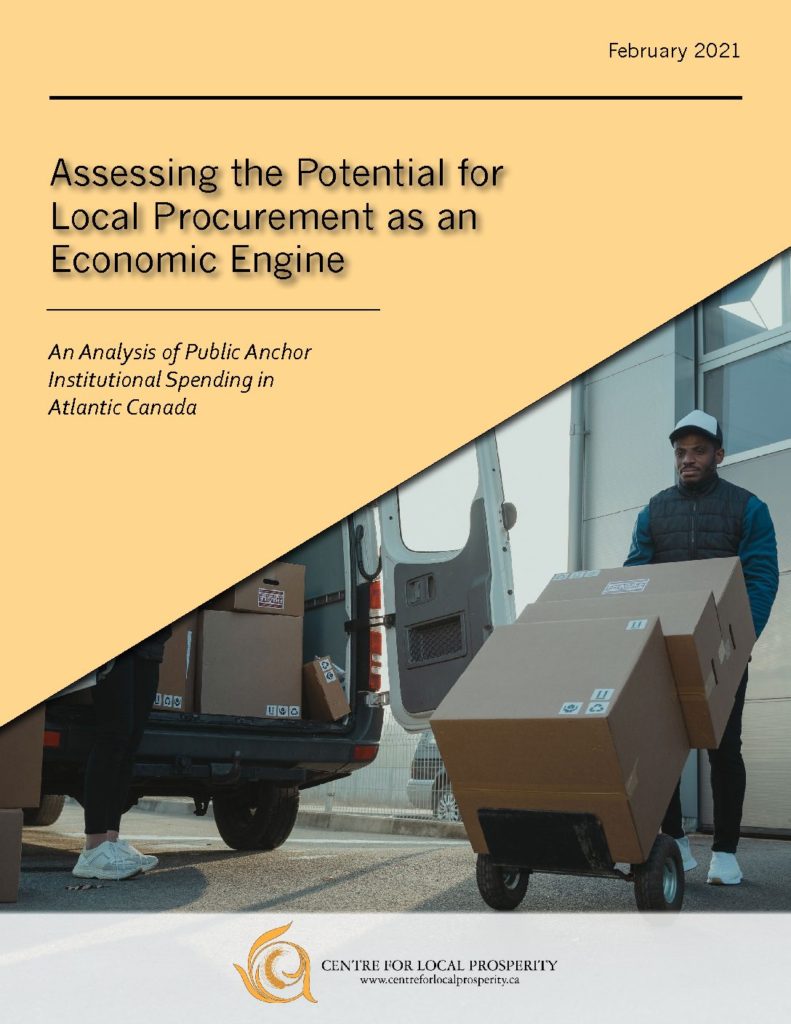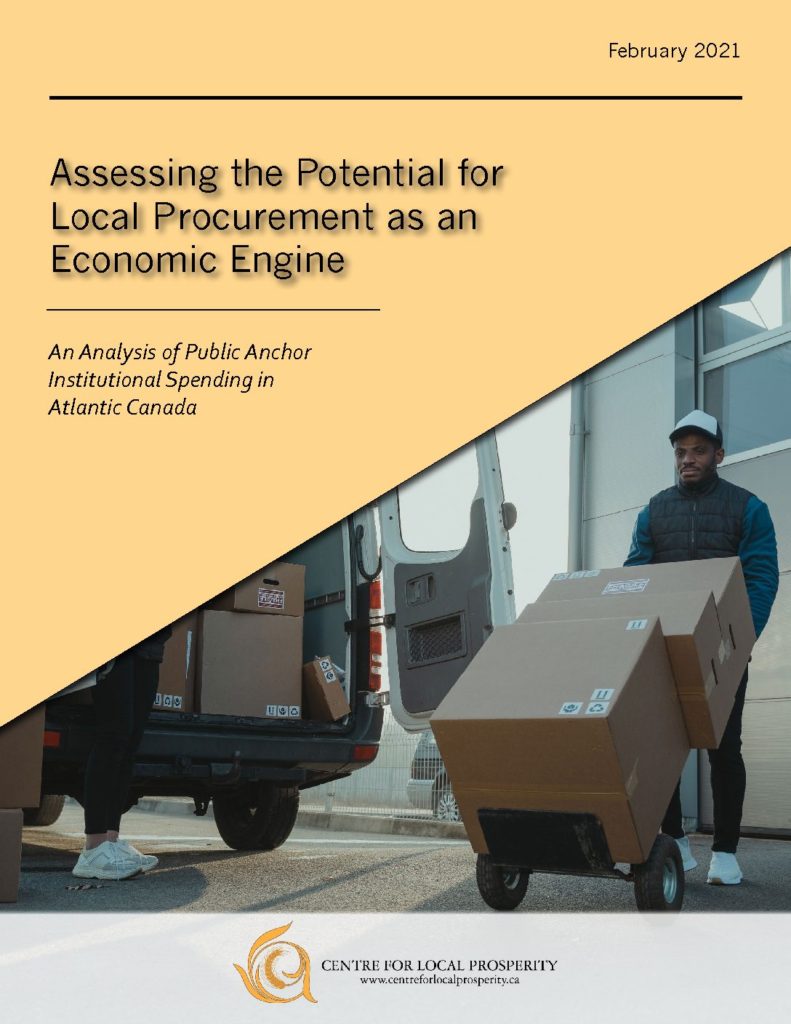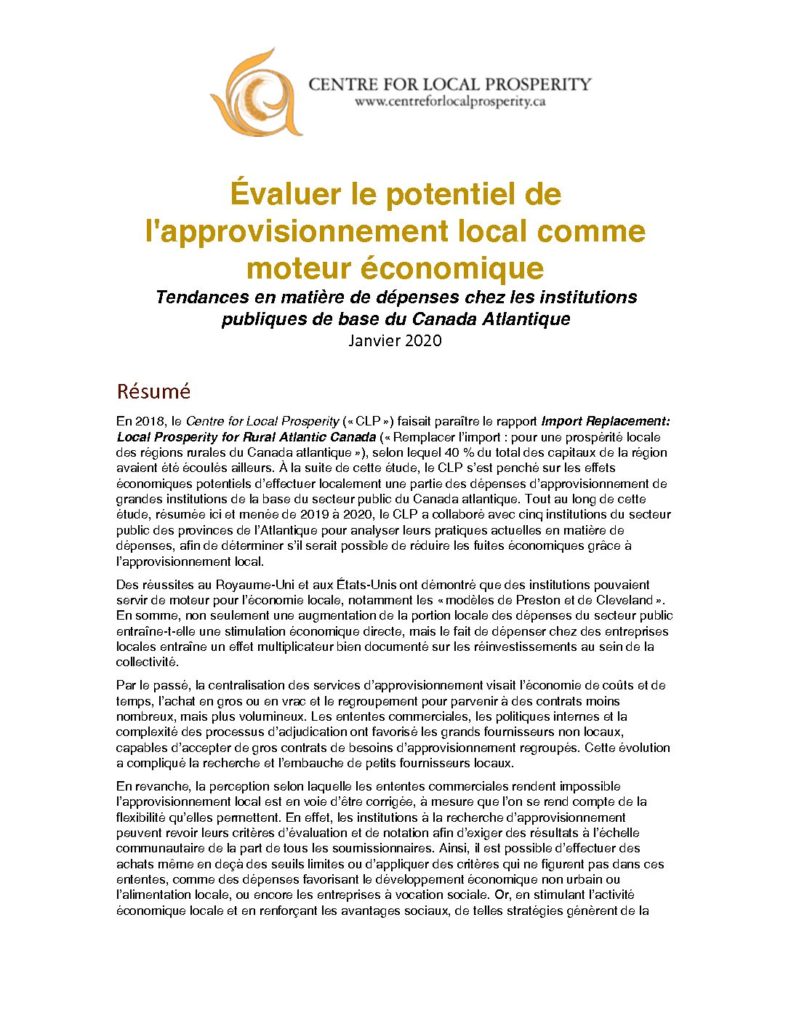Assessing the Potential for Local Procurement as an Economic Engine: An Analysis of Public Sector Institutional Spending in Atlantic Canada
The Centre has published a report on its program across Atlantic Canada to work with public-sector institutions to demonstrate leadership by expanding their community mandate to include the role of an economic engine. There could be a significant economic impact to our regional economies if more educational institutions, municipalities and other public sector anchors adopted a strategy for a small local shift in their procurement practices. This spending analysis forms the foundation for an institution’s local supplier interaction, and ultimately for building the local business base and economic health of communities in our region.
Economic Development Through Increased Local Public-Sector Procurement
Is it time to switch from “just in time”
to “just in case” supply chains?
There is a shift happening in Atlantic Canada on how public sector institutions
view their procurement function. They are beginning to see the enormous
potential to act as an economic engine for local economies through their
purchasing decisions, thus moving the procurement offices from a back room
function to become a public-facing integral part of their economic development
platform.
The Centre is continuing to assist institutions to determine their current procurement spending patterns and assess the degree and types of spending that could occur with local suppliers. Greater localizing of procurement builds greater long-term resilience in local economies, provides buffers against long distance supply chain interruptions and represents the heart of ‘import replacement.’ It is well understood that local businesses which can successfully supply local institutions quickly expand into exporting opportunities.
Many procurement officers express concern about the ability to undertake local procurement because of the trade agreements. In fact, there is considerable flexibility within all the trade agreements, especially regarding the Exemptions, Exceptions and Exclusions. The Centre has developed a brief which highlights these and other areas of flexibility:
Following the Preston Model
This project represents the first time in Canada that the highly successful ‘Preston Model’ is being practiced. Working with 6 public-sector institutions, this city of 115,000 received the 2018 Price Waterhouse Coppers award for the most improved city in England based on this work, and dozens of other regions in the EU are following the example. See the following Guardian articles about this success:
For more information about CLP’s Anchor Institution Spending Analysis work, contact: info@centreforlocalprosperity.ca





